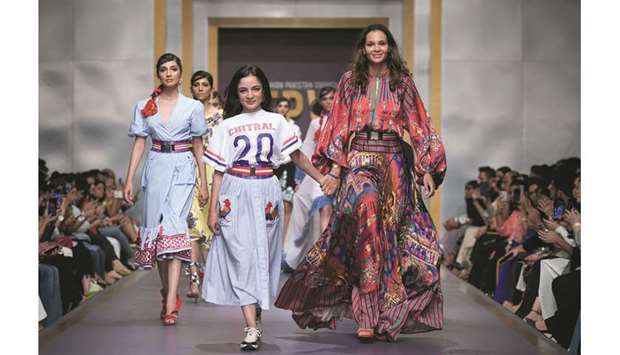Think of ethnic wear, and the first natural association is a growing tribe of indie labels that have extended their pared-down sensibility and sustainable mindset to traditional silhouettes.
The line between inspiration and adoption is often blurred, especially in fashion. Nobody knows this better than the ethnic community, whose consecrated prints, hand-burnished leatherwork, and beaded appliqués and embroideries have been imitated by local and international fashion houses for centuries. Often it even happens, that designers travel to those ethnic places, place orders, corporate ethnic designs in their collections and don’t even give enough credit to those skilled ethnic workers. This type of cultural appropriation, where labels draw from deep-rooted design codes without crediting the culture they are taking them from, is particularly harmful to indigenous people, who have been, and continue to be, marginalised — rather invisible for the world. In these dark days, one good thing about fashion is the way young designers are using their platforms to enlighten, and to effect positive change.
Thankfully, Pakistani indigenous fashion is finally gaining some ground on international platform thanks to Stella Jean, an Italian designer.
Jean should be more than proud of her ability to use her fashion for good. Her activism goes far beyond slogan tees and hashtags and actually incites economic and social change.
With her penchant for ethical fashion, Stella had previously worked with artisans from other countries, intermingling their craft with her design sensibility. Now, she decided that she wanted to work with the craftswomen of the Kalash.
Stella recently showcased her collection employing Kalash embroideries, from the remote valleys of the Chitral region of Pakistan, at Milan Fashion Week earlier last month and then at Fashion Pakistan Week Winter Festive 19. Stella herself lived in Chitral for about two weeks to learn about the embroidery techniques women use to adorn their dresses before collaborating with Chitral Women’s Handicraft Centre, founded by the 22-year-old Karishma Ali for the collection, in her endeavour to help build an Italy-Pakistan bridge. The women in Kalash embroidered fabric according to her instructions, patterns and sketches and then their finished work was sent to her in Italy, where the final garments were stitched. Tedious but worth-it, socially and commercially.
Stella’s collection at FPW featured waisted sundresses in crisp stripes, logoed sports jersey with slim tailoring — bright embroideries and even brighter prints. Her sense of shape and silhouette is her most exciting calling card. These were happy summer clothes, with circle-skirted dresses, puff-sleeved blue and white shirting, off-the-shoulder necklines and tiered skirts — it was the best collection that went on the runway of FPW this season, and the best how she employed ethnic values with modern silhouettes; spot-on trend-wise for the season. The colourful stitching wrapped around dresses, adorned belts, and decorated the hemlines of Jean’s summer dresses.
Jean’s multicoloured canvas served as an apt homage to the beauty and skill that is inherent to Pakistan. The Kalash embroideries stood out as did the truck-art prints. The well structured white dress with its swathes of layers and blue embroidered border and peeking blue leaves, worn by model Mushk Kaleem, was the highlight.
But, in a room full of people donning the staples, how do you make yourself stand out? Jean’s piece is ideal for a woman who likes to keep it traditional yet make a statement.

INDIGENOUS FASHION IN FOCUS: Stella Jean recently showcased her collection employing Kalash embroideries, from the remote valleys of the Chitral region of Pakistan, at Milan Fashion Week earlier last month and then at Fashion Pakistan Week Winter Festive 19.
